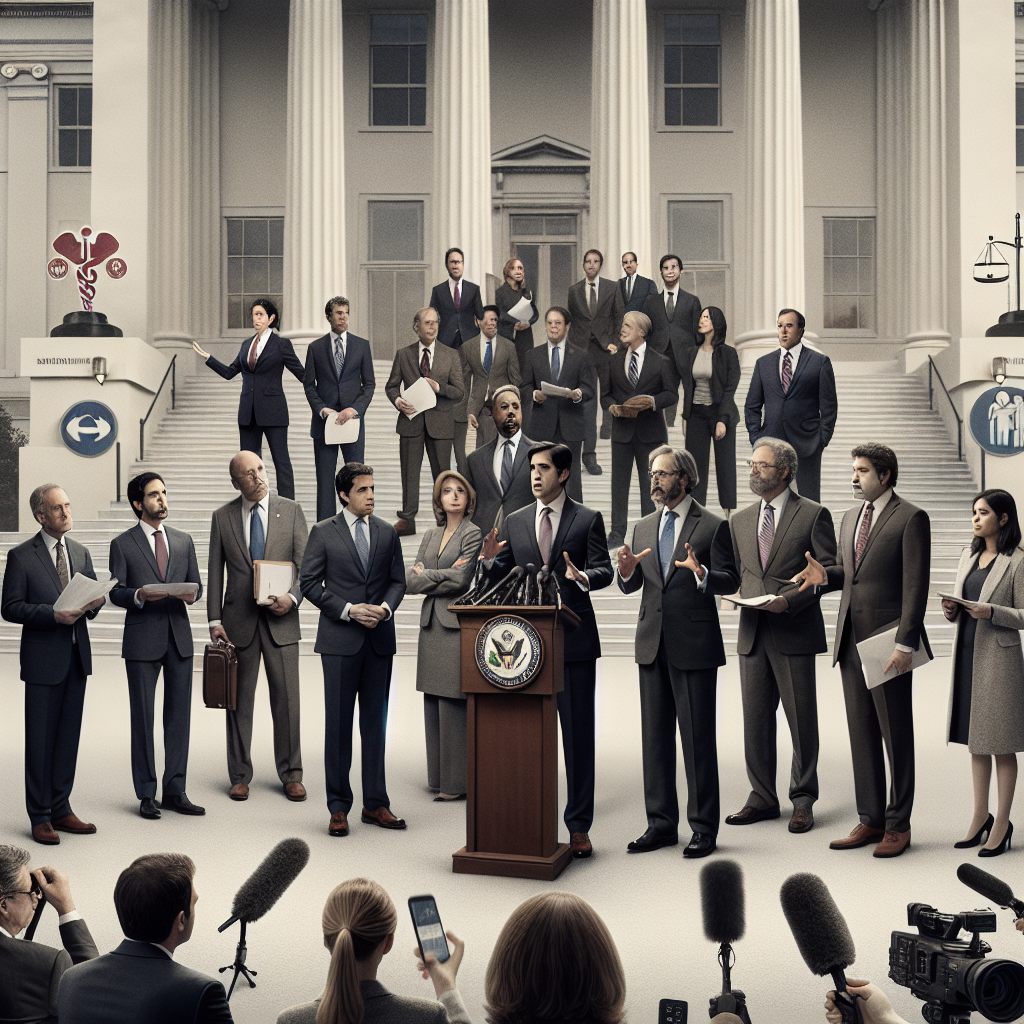
Addressing the Crisis of Canceled VA Mental Health Appointments
The well-being of veterans is a matter of national concern, and yet, despite various initiatives, a significant issue persists: the alarming rate of mental health appointment cancellations at the Department of Veterans Affairs (VA). Recognizing this growing challenge, a bipartisan group of lawmakers is calling for substantial reforms to address this systemic issue.
The Alarming Statistics
Data reveals a grim picture; between 2020 and 2023, nearly 10.6% of mental health appointments at VA facilities were canceled, with a peak at 12.1% during the early months of the COVID-19 pandemic. These figures highlight a critical gap in the mental health care provided to our veterans, potentially leaving many in distress without timely support.
Lawmakers Demand Action
Led by Representatives Marilyn Strickland (D-Wash.) and Mike Waltz (R-Fla.), a group of 13 bipartisan lawmakers has stepped forward with a demand for reform. They sent a letter to VA Secretary Denis McDonough, prompted by an investigation and constituent feedback. This investigation, referenced from an Oct. 17 report by Military.com, showcases distressing challenges veterans face in accessing consistent mental health care.
Key Points from the Lawmakers’ Letter:
- Urgency in addressing the long wait times for mental health appointments.
- A call for the VA to streamline its scheduling processes to ensure continuity of care.
- The necessity for a “robust” recruitment and retention initiative focused on mental health professionals.
Reported Challenges and Real Stories
The picture painted by veterans and VA staff highlights a stark reality. Veterans waiting months for essential appointments often face last-minute cancellations without explanation. One veteran from Strickland’s district faced an unfortunate scenario where seven out of his 16 scheduled appointments were canceled. Such disruptions contribute to feelings of abandonment and neglect in the veteran community.
VA’s Response and Current Efforts
Despite these challenges, VA Secretary Denis McDonough contends that the VA is providing unprecedented levels of care, claiming significant hiring efforts are underway to address staffing shortages. The data reflect increasing service numbers, yet the perception remains that for many veterans, the care isn’t timely or consistent.
The Call for Systemic Reforms
Lawmakers and advocates argue for critical reforms within the VA’s appointment management systems. Currently, described as “outdated” and “dysfunctional,” these systems often exacerbate wait times and discourage veterans from seeking necessary care.
Notable Statements and Concerns:
- Former VA Secretary Dr. David Shulkin warns of an incoming “wait time crisis,” exacerbated by increased demand under new legislation.
- Rep. Matt Rosendale (R-Mont.) and Rep. Sheila Cherfilus-McCormick (D-Fla.) have flagged the scheduling system’s inadequacies, calling for urgent innovations.
Next Steps for the Department of Veterans Affairs
The lawmakers’ letter outlines actionable solutions: enhance mental health professional recruitment, streamline appointment systems, and ensure reliable and effective care pathways for veterans. They stress the importance of the VA undertaking “swift comprehensive action” to address these systemic issues. This sentiment captures a collective determination to see tangible improvements for those who have served the nation.
Conclusion
Addressing the current state of VA mental health care requires dedicated attention and reform. As stakeholders continue to push for necessary changes, the hope remains for a more responsive, effective VA capable of meeting the mental health needs of America’s veterans. It is pivotal that systemic reforms are not only discussed but quickly enacted to ensure no veteran feels abandoned in their time of need.

